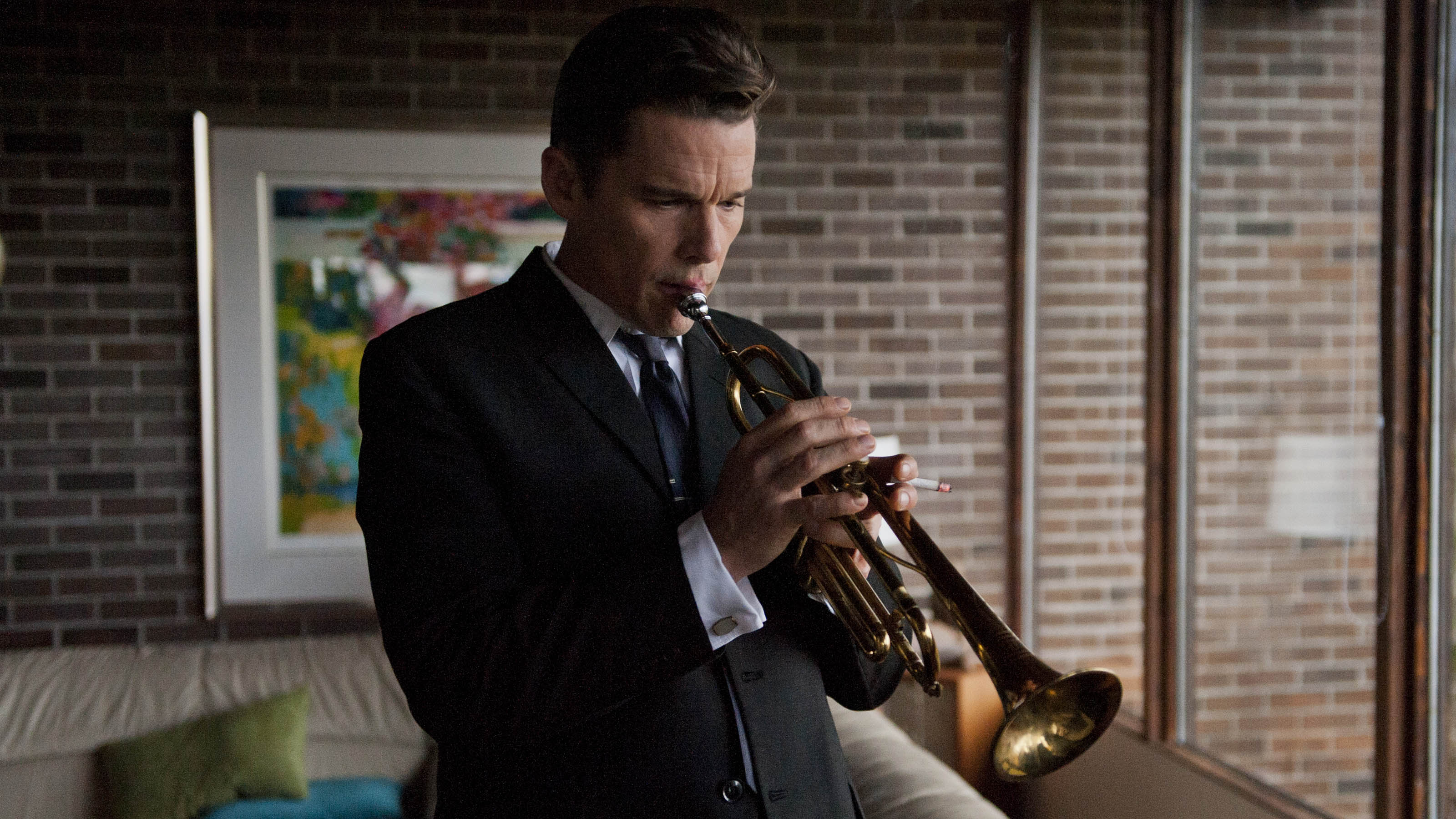A talented young heartthrob with a hard-to-please father and seemingly endless potential gets into drugs and loses it all, only to stage a magnificent comeback a decade later—perfect biopic fodder, and how one might expect the Born to Be Blue elevator pitch to go.
But director Robert Budreau shirks the childhood-to-death format that has become the biopic standard for his film about jazz legend Chet Baker (Ethan Hawke). Instead, the film opens on Baker at what we assume is rock bottom, lying on the floor of an Italian jail cell. A big-shot Hollywood director comes in and tells him he can get him out of jail if he’ll just agree to star in a biopic about himself. If that sounds a little meta, that’s because it is.
Cut to black and white: a bright-eyed Baker at the height of his career, signing autographs for his adoring fans outside legendary New York jazz club Birdland. A classic music biography flashback, which is a scene in the movie we’re watching, but also the one they’re making.
This movie-within-a-movie mechanism is nothing new, and Born to Be Blue is nowhere near as adventurous with the concept as some of its predecessors, but Budreau uses it to great effect as a technique rather than a conceit, creating a hazy impression of the young Baker, one perhaps not dissimilar to Baker’s own heroin-tinted memories.
On set, Baker meets Jane (Selma’s Carmen Ejogo), an actress who plays a composite of his past love interests. Predictably, she becomes his current love interest, and the film begins to follow the second-most-popular biopic structure: meet-cute-to-marriage. But just when it’s starting to feel like the standard “tortured artist just needs a good woman” drivel, Born to Be Blue throws a curveball. It is a love story, but one between Baker and heroin, not Baker and Jane.
Born to Be Blue is a love story, but one between Baker and heroin, not Baker and Jane.
Hawke is a perfect Baker, soft-spoken and good-natured with a hint of volatility bubbling just under the surface. He plays the famous trumpeter with equal parts coolness and insecurity, a lost boy seeking approval but firmly convinced he needs none.
When Baker hits his actual rock bottom (that Italian jail was just the beginning), Hawke telegraphs his agony so well it’s actually painful to watch. But although Hawke forces us to empathize with Baker, he makes it almost impossible to root for him. He plays the trumpeter not as the flawed but well-intentioned hero of biopics past, but as a junkie who almost believes himself when he says, “I’ve never hurt anyone but myself.”
Ejogo is equally brilliant, managing to convince the audience that she’s in love with a character who is barely even likeable, his charm curdled by years of heroin abuse. As Jane, she delivers entire monologues with just a look, somehow managing to breathe new life into the tired stalwart companion archetype.
It would be easy to overlook Ejogo’s performance, as she is playing a far more subtle character than Hawke, but she plays Jane with a subtlety and finesse that ends up being integral to the film. When we do root for Baker, it is for Jane’s sake. Baker is his own worst enemy, and while Hawke helps us understand him, it is Ejogo who gives us a reason to hope he succeeds. FL







